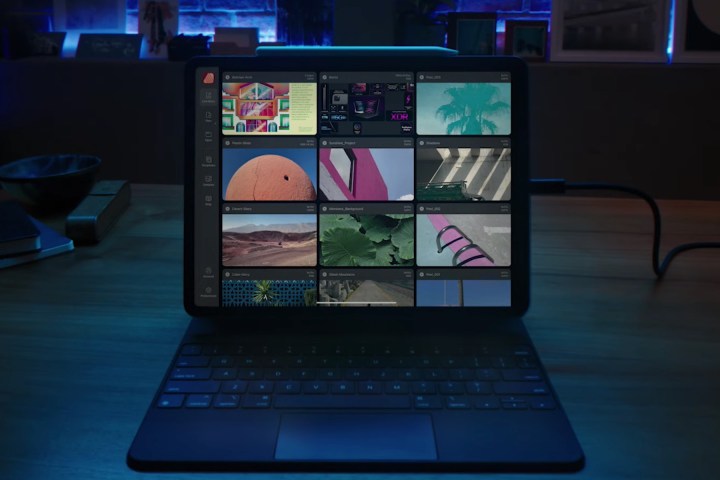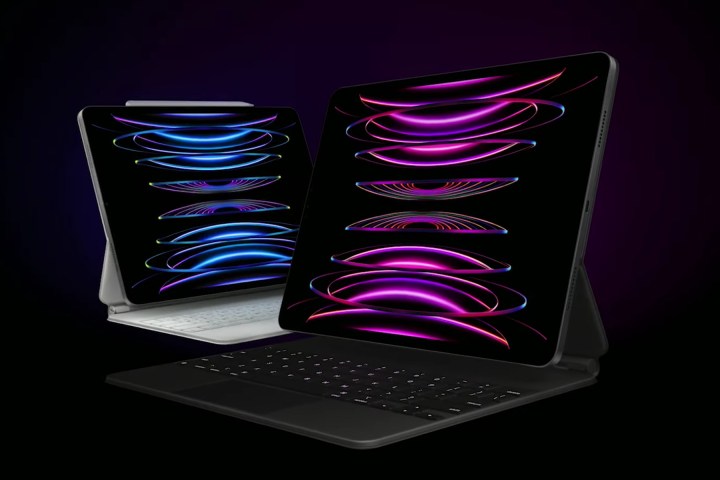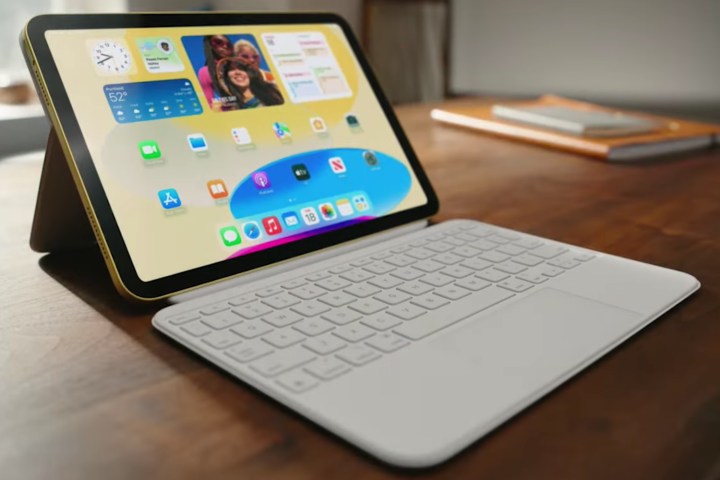Apple’s latest-and-greatest tablets are here. Apple announced its next-gen iPad Pro lineup today without an in-person or prerecorded event. Instead, all we got was a simple press release. The biggest sell here is the M2 chip, which offers a modest 10% bump in processing prowess and a 35% jump in graphics grunt. Then there’s the new Apple Pencil hover feature that shows contextual UI action before the stylus even touches the screen.
That’s about the end of meaningful upgrades this year for the Pro tablet. The company is still charging a handsome $799 for the 11-inch model, which doesn’t get the mini-LED upgrade, for yet another year. We’re talking about the Wi-Fi model here, mind you. The 5G-ready trim will cost you a minimum of $999. Not exactly an affordable investment for a tablet, irrespective of how hard you push it. And if you step up to the 12.9-inch version, things only get more out of hand.
An expensive ride with little new inside

Let’s center the debate on the 12.9-inch iPad Pro, which is the best that Apple has to offer, complete with the mini-LED screen goodness. To own one, you need to fork out a minimum of $1,099, while the cellular model starts at $1,299. That’s quite the sum to pay for a tablet, especially when the same price tag is enough to bag the excellent M2-powered MacBook Air.
That’s without including the $349 keyboard, which is arguably necessary to bring the iPad Pro close to becoming a serious computer replacement. I am a hopeless tablet computing loyalist, and I can’t imagine a computing future for any iPad without a proper keyboard accessory. Plus, if you’re targeting any stylus-heavy creative tasks, prepare to burn an additional $129 for the Apple Pencil.
The final bill comes to a wallet-destroying $1,577, without any 5G perks. One would have hoped that Apple had made fitting hardware upgrades to justify that hit on the buyer’s bank account — but that’s not the case here. You really need to convince yourself how much that added M2 horsepower matters to you, and whether the stylus hovering feature can really boost your productivity in any meaningful way.

I was really looking forward to getting the new iPad Pro and turning it into my primary computing machine. It’s not an outlandish idea in 2022. I actually loved using the Samsung Galaxy Tab S8 as my work PC and came out impressed. Plus, iPadOS 16, with all its desktop-class tricks like Stage Manager, finally comes close to replicating that experience for me.
But there is hardly any worthwhile merit in picking the M2 iPad Pro over the M1-powered predecessor. Save for the ProRes and ProRAW photo and video perks, there is hardly anything that the M1 can’t do when compared to its M2 successor.
Yes, the M2 can speed up video exports by a few seconds, but those seconds are not worth a few hundred dollars if you choose to stick with the M1 iPad Pro.
Where are the upgrades, Apple?
The iPad Pro was heavily rumored to get the wireless charging MagSafe upgrade this year. Well, that didn’t happen, unfortunately. The screen tech remains unchanged, the battery life figures are identical to the last year’s model, and the connectivity suite is also a no-upgrade affair.
But look over to the less-pricey side of Apple’s tablet ecosystem, and you quickly see where all of Apple’s attention has gone. The 10th-gen iPad gets a fresh design, faster chip, improved cameras in a more meaningful orientation, a switch away from the Lightning port, and upgraded connectivity with 5G support.
The upgrades are here, just not where the money is!
Apple even paid special attention to the accessorizing side. The company has introduced an all-new Magic Keyboard for the entry-level iPad, which has a function row now. To put that into perspective, the far pricier Magic Keyboard case for the iPad Pro lacks this crucial facility.

It even has a kickstand, which offers far deeper angular adjustment versatility than the magnetically locked positions you get with the iPad Pro’s keyboard. Yes, Apple hiked the price by over $100 this year, but the upgrades justify, if not outweigh the premium.
Now we understand why Apple just announced the new iPads with a couple of press releases and new product pages. Nothing amazing here. https://t.co/gCMrZLWtPZ
— Andrew Martonik (@andrewmartonik) October 18, 2022
More importantly, the upgrade treatment covers the entire ecosystem around Apple’s cheapest tablet, while Apple’s priciest tablet gets none of that. One of my colleagues notes that the new iPad Pro can best be described as a “meh” upgrade, and it’s hard to argue with that conclusion.
To spend, or not to spend
In 2022, more than any other year, it’s far easier to recommend — or dissuade — folks interested in the iPad Pro charm. If you are still rocking an old iPad with that bezel-loving design and aging Bionic A-series processor, the M2 iPad Pro is a great upgrade. That is, if you can’t find an M1 iPad Pro in stock either online or in retail stores.

If you have an M1 iPad Pro already on your desk, it is not worth even looking at the shiny artwork and fancy tech buzzwords for the upgraded model on Apple’s website. However, if you have any hot opinions, Twitter and Reddit could really use some of your criticism.
Maybe Apple will pay heed to the chatter and bless us with an iPad Pro upgrade that is truly worth its luxurious price tag. Until that happens, you can safely relegate the M2 iPad Pro to the “meh” universe and save your money for more meaningful tech purchases down the road.



